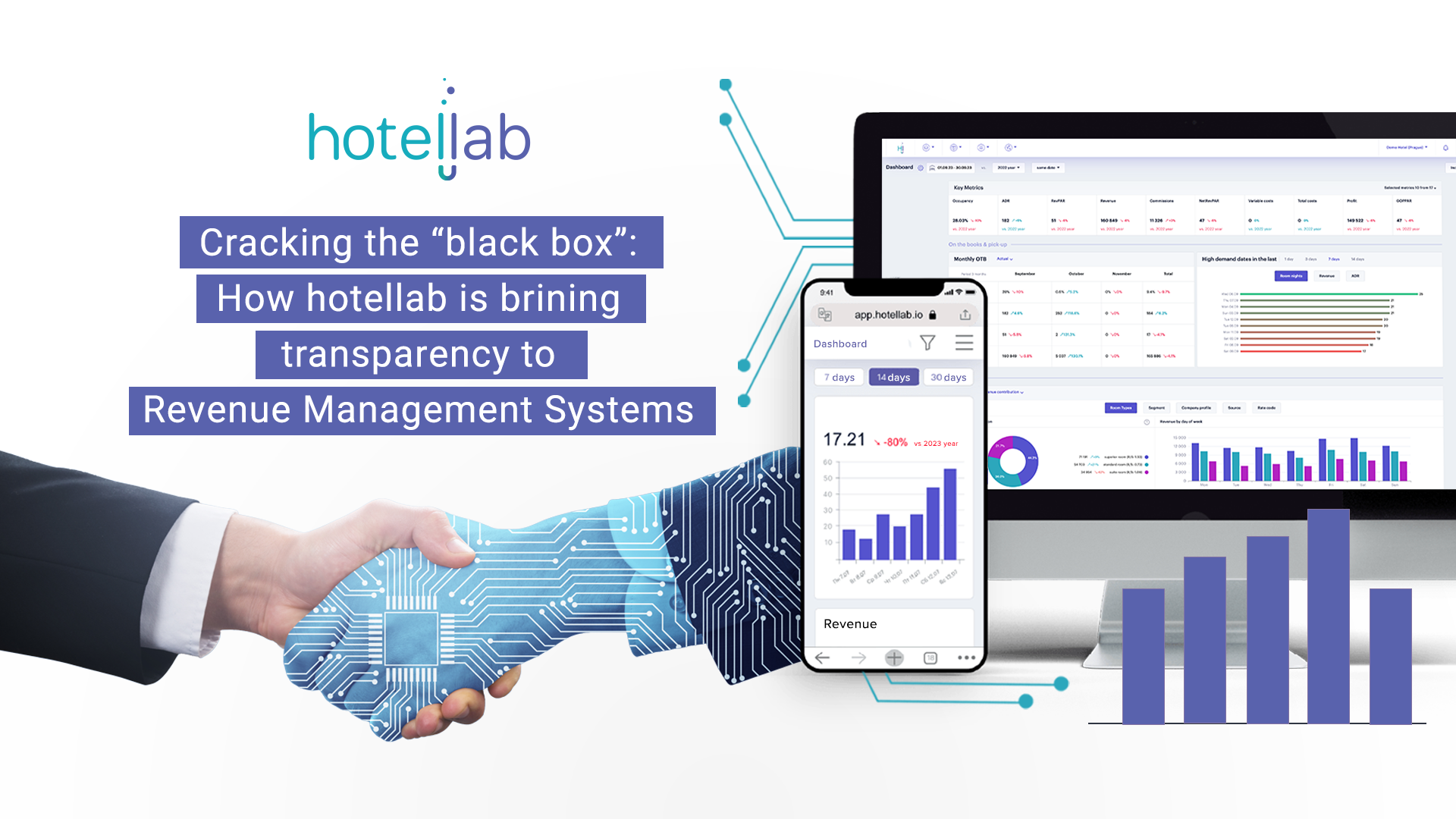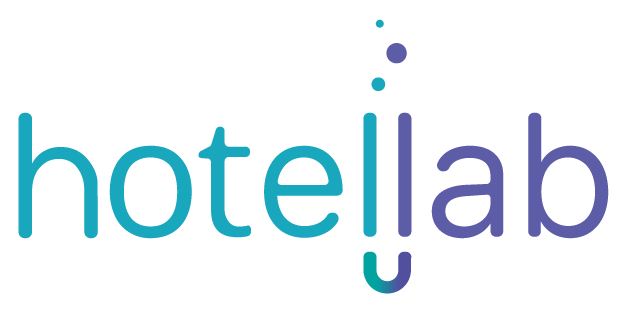

In the world of hospitality, the Revenue Management System (RMS) has long been seen as a mysterious "black box", a complex entity that in the eyes of hoteliers produces pricing recommendations seemingly out of thin air. Hoteliers, both large chains and small establishments, have more commonly relied on these systems to optimize their revenue, but the lack of transparency still leaves many with questions about how these decisions are made. As a result, rate overrides based on own gut feelings remain a frequently implemented solution.
Hotellab, on the other hand, is changing the game by lifting the mystery around RMS. Moving away from the idea of technology as a puzzle, hotellab is focused on making things clearer. They are helping hoteliers understand how pricing suggestions work by unraveling the details. Moreover, hotellab goes beyond by enabling users to tailor the algorithm to their distinct scenarios. This commitment to transparency is reshaping revenue management, empowering hotels to confidently steer their pricing strategies.
Balancing strategy approaches and mathematical insight in Revenue Management
In the dynamic landscape of revenue management, the interplay between mathematical accuracy and hotel strategies often introduces a complex challenge. Although pricing optimization models based on mathematical algorithms and pricing elasticity can provide accurate decisions, they may not always perfectly match the specific strategies that hotels want to implement. An illustrative example refers to pricing decisions for bookings made close to the date of arrival. While lowering prices in this scenario can stimulate bookings during a high-demand lead period, boosting RevPAR (Revenue per Available Room), such an approach might negatively impact guest satisfaction. Another frequent example involves the acceptance of corporate and group business during high-demand periods. While displacement analysis may advise against accepting such business, if these opportunities might also contribute positively to other periods, it need to be reconsidered with the broader strategies of the hotel.
These examples showcase some basic pricing challenges that hoteliers regularly face. However, the true challenges lie in the algorithm behind pricing optimization models. Despite the variety of data available to modern RMS, such as live integration of reservations from PMS (Property Management Systems) and market demand insights, significant uncertainties remain in the ideal model configuration. This happens due to the uniqueness of each hotel, shaped by factors like room inventory, location, competitors, business mix, online visibility, demand patterns, and more. Even internal settings such as seasonality and day types, including weekdays and weekends, along with event-driven periods, define pricing optimization approaches. Given these complexities, what potential solutions exist to address this challenge?
Challenges in RMS performance tracking
Acknowledging the unique demand patterns of each hotel, even the most advanced pricing optimization algorithm within an RMS might fall short in accounting for all factors.
Adding the challenge of tracking an RMS's performance, particularly given the limited availability of comprehensive benchmarking data for proper performance comparisons. Even when the benchmarking data is available, relying solely on metrics like RGI (Revenue Generation Index) might not offer a complete picture, as achieving better GOP (Gross Operating Profit) results (more desired by hotel owners) is still not clear.
Hence, it becomes crucial for every RMS vendor to adopt its system with the strategic goals of hotels, identifying and understanding the specific indicators that hotels seek to improve. Within the scope of pricing optimization, a diversity of scenarios comes into play, giving hotels the opportunity to fine-tune strategies in alignment with their unique stratagies. These situations involve a wide range of factors to think about, including how the competitors on the market affect pricing choices and finding the right balance between the ADR (Average Daily Rate) and the Occupancy. In this complex situation, hotels as an example can make a conscious decision to focus on increasing the ADR to make more profit, even if it means slightly reducing the RevPAR by having fewer rooms occupied. This strategic move allows hotels to progress toward their goals with careful planning.
Journey to success with user-driven customization
Recognizing this, hotellab has embarked on a journey centered around user-driven customization. We understand that every hotel is a unique field, shaped by its own booking patterns, market demands, and business goals. With hotellab, hoteliers gain the power to fine-tune their strategies, adjust algorithms, and personalize metrics to fit their specific needs. When it comes to competitors' settings in RMS, this adaptable algorithm can include updates such as the scale of each competitor's influence, position of each Room Type to competitor median, detailed room mapping for each room, and overall index of competitors' data on the pricing decisions.
While the platform incorporates competitive data, it goes beyond that. hotellab seamlessly integrates crucial information from PMS, including booking pace, segmentation data, room revenue, and full inventory snapshots. Furthermore, by combining internal demand data like market supply and flight searches, the platform provides hoteliers with a comprehensive view of demand. Through the Machine Learning Pricing Algorithm, users have the flexibility to design models that align accurately with their unique demand patterns and evaluate performance based on metrics that truly matter.
For hoteliers seeking to enhance their algorithm customization skills, hotellab offers a groundbreaking solution: the hotellab:pricing simulator. This invaluable tool empowers users to boost their Revenue Management competence. Additionally, our dedicated team of Account Executives stands ready to provide hands-on support, ensuring clients optimize their algorithm settings for maximum impact. Through this journey to success with user-driven customization, hotellab redefines revenue management, placing extraordinary control and adaptability in the hands of hoteliers.





.png)

